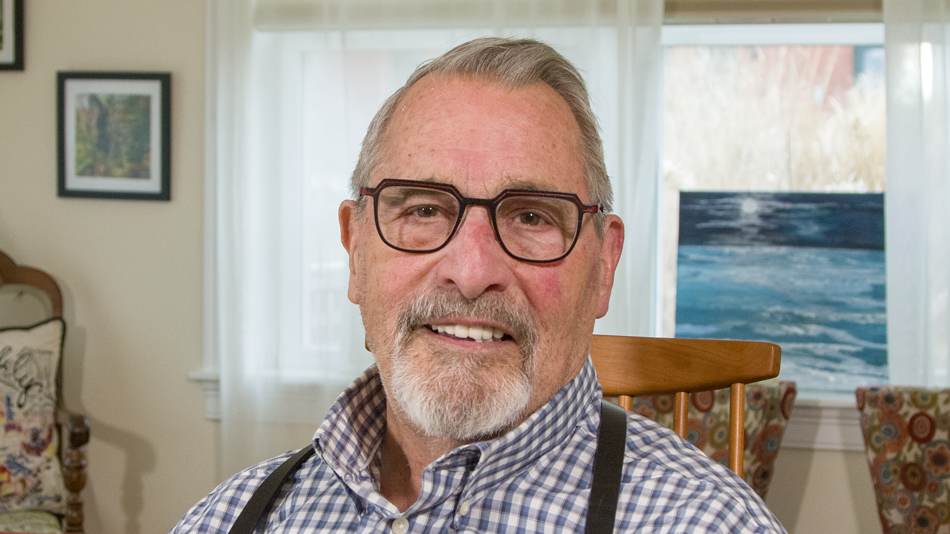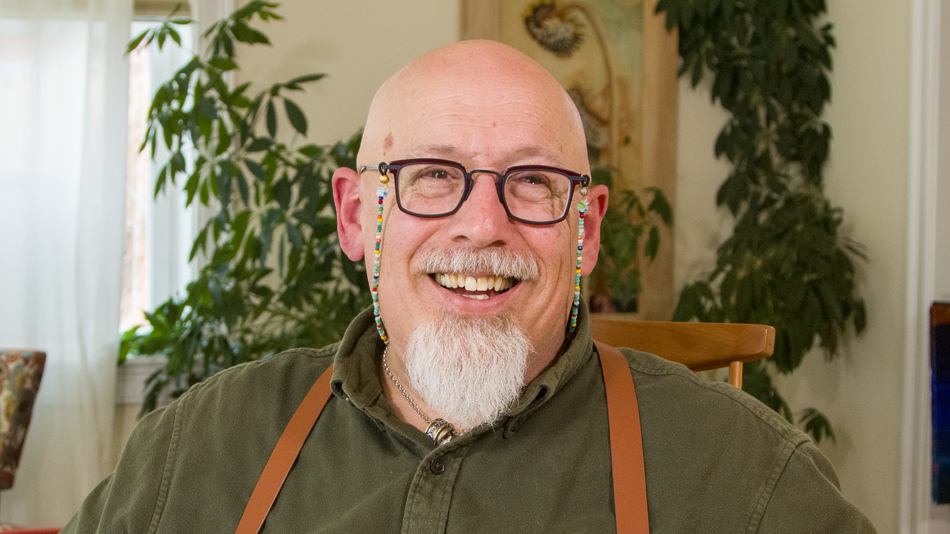All parents just like all children should be there to support each other unconditionally. That’s all our job as human beings is to love and support each other as who we are.
My name is Bart Loeser and I’m from Houston, Texas. So it was summer, early summer of 1986. And my best friend who was my roommate previously had just moved to San Francisco a couple of months before when he called me in July and said, “I’m in the hospital and I have AIDs and I’m dying.” And it was quite a shock for me at first. And the more I thought about it, the more I realized, well, if he could have HIV, maybe I should get tested at least. And so that summer I decided I would go ahead and get an HIV test. Not expecting anything from it. But when I was sitting in the doctor’s office, just before my 26th birthday, he says me, “Well, you’re HIV positive, and you might want to take care of your affairs, get them in order, because you’re not going to probably have more than three or four more years.”
I thought he was kidding at first. And then he paused and he said, “And by the way, your cholesterol level’s a little high. You might want to work on that.” Well, I wanted to strangle the limit at that moment, but when it started to sink in, I began to start to panic. I mean, here I am just starting off my life. I had a new career. I didn’t know what to do. I was in love for the first time and thought all of this is now over. I hadn’t even come out to my parents. And so I thought, well, the first thing I’m going to probably do is talk to them about being gay and sort of test the waters and see how are they with that? And so, I planned for a weekend when we would get away to my parents had a little lake house on Lake Livingston.
And so I went up with them that weekend and thought, “I need to talk to you about something.” And they sat down and they were looking a little worried, “Like what is it?” And I said, “Well, I think I need to tell you this right now. I haven’t shared this with you and I’m sorry I haven’t, but I’m gay.” They were like shocked at first. And then they wanted to tell me that I wasn’t. They said, “Are you sure? But you used to date all these girls.” And they just didn’t know to think. It was not necessarily something that they knew how to handle. They hadn’t prepared themselves. And I didn’t know what to say to that other than that’s all it is. And I would expect as much respect from them as my brothers would get. And they basically said, “Well, you just need to give us some time.”
It took several weeks or months and I heard nothing from them. And so then I would occasionally need to bring it up somehow, so we could begin to talk about it a little bit. They got more and more comfortable. And then about a year later I decided it was probably time I better tell them about the HIV since I’m running out of time myself. It was about eight months later when I sat down and we went over to the house or I went over to my parents’ house and I sat them down and I said, “Well, I know we’ve talked about this, but I haven’t been completely honest and I don’t want to worry you because I’m doing everything I can. But I found out I’m HIV positive.”
And again, they were quiet. And my father finally just turned to me and said, “I think we just want to know that you’re doing everything you can because we’re worried and we know something’s got to be done.” And I said, “I’m doing everything. I’m seeing a doctor.” There’s not really anything you can do about it at that time. I said, “I’ll just take care of myself the best way possible and keep you guys informed.” So that’s where it went for a while for a couple of years and they wouldn’t talk about it. And I didn’t really share. Eventually, though, they got more concerned and wanted to talk about it because they knew at that point I started working for the AIDs Foundation in Houston. I became an HIV educator and they were proud of that. They liked the fact that I was doing something to make a difference and I was as well, but they were worried because they also knew I was going to funerals sometimes once a week.
And they knew many of my friends were dying and I was taking care of friends and they were really worried, not just for my health, but my mental health. Back in the late 80s, ’89, they had decided to move from Houston and retire to Durango, Colorado. They started hearing about some politics going on were at that point, Colorado wanted to pass a law called proposition six that made it illegal for not only anyone to talk about gay issues, but if a teacher was discovered or even rumored to be gay, they could instantly be fired. No questions. My parents were incensed by that. They got involved with their parents. Well, parents and friends of lesbians and gays and Planned Parenthood as well as an organization called Gays and Lesbians Association of Durango and started becoming more political and decided to help fight this.
Unfortunately in the early 90s, my husband Bruce died in April of 1991. And then my next boyfriend who I considered my husband died two years later and my parents were there every steps of the way. They were incredibly supportive of me. They were supportive of the families of my partners. They were just incredible, the love they had and the support they had. And I realized how lucky I am to the point where my parents had gotten so active as advocates, that when we had a chance to go to the March on Washington and they did the showing of the quilt, my dad who had just had a stroke and he was having so many problems being able to talk, he could hardly get words out. And he was asked to represent P flag as the president and go read the names of the quilt.
And after dad’s stroke, he thought he couldn’t do it, but he was determined to do it. And he would practice trying to speak. And watching him get up there in Washington on that stand and as difficult as I knew it was, and he got those names out. It was not easy, but he read all I think it was 20 names and got through it and people clapped and it was just such a moving moment. And I was never more proud of my parents. They were just such amazing people. And I am so lucky. They’ve given me a level of strength that even though mom’s been gone now nine years and dad’s been gone 22 years, they feel like they’re right here to me. I have strength and support from them. I know how they feel about me. I believe they support me completely and are very proud of me. And I couldn’t be more proud of them.
All parents just like all children should be there to support each other unconditionally. That’s all our job as human beings is to love and support each other as who we are.








Share